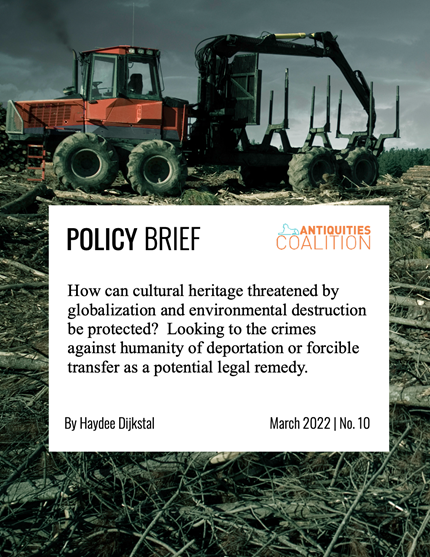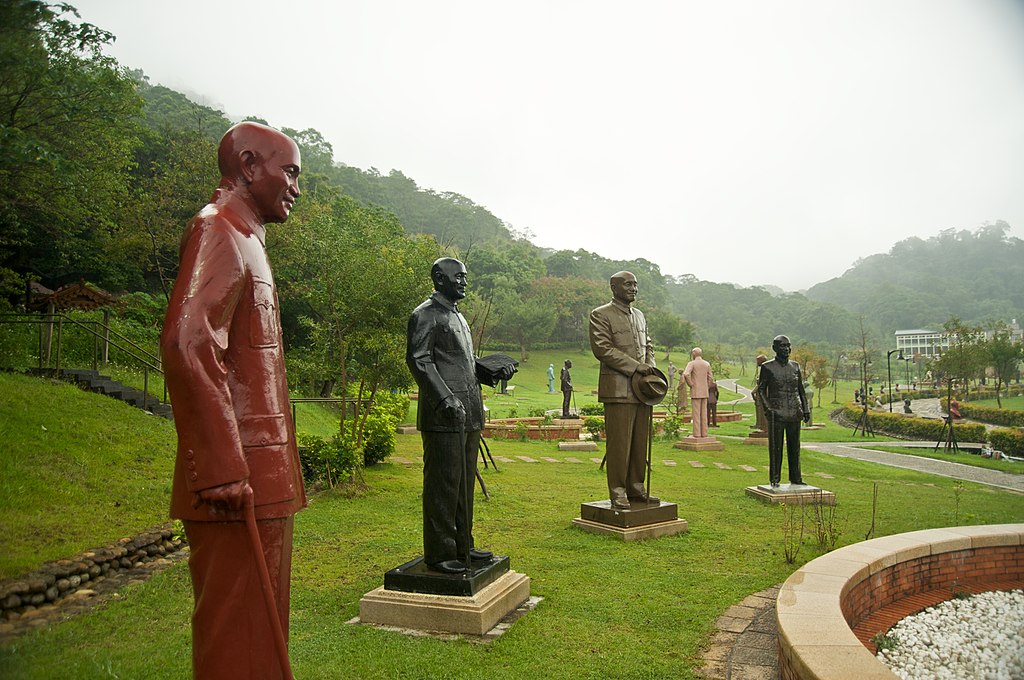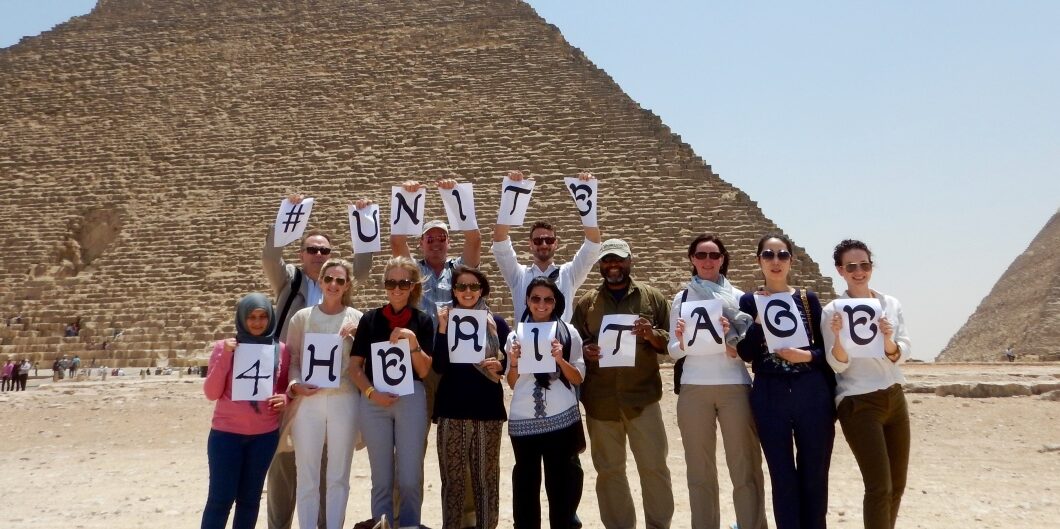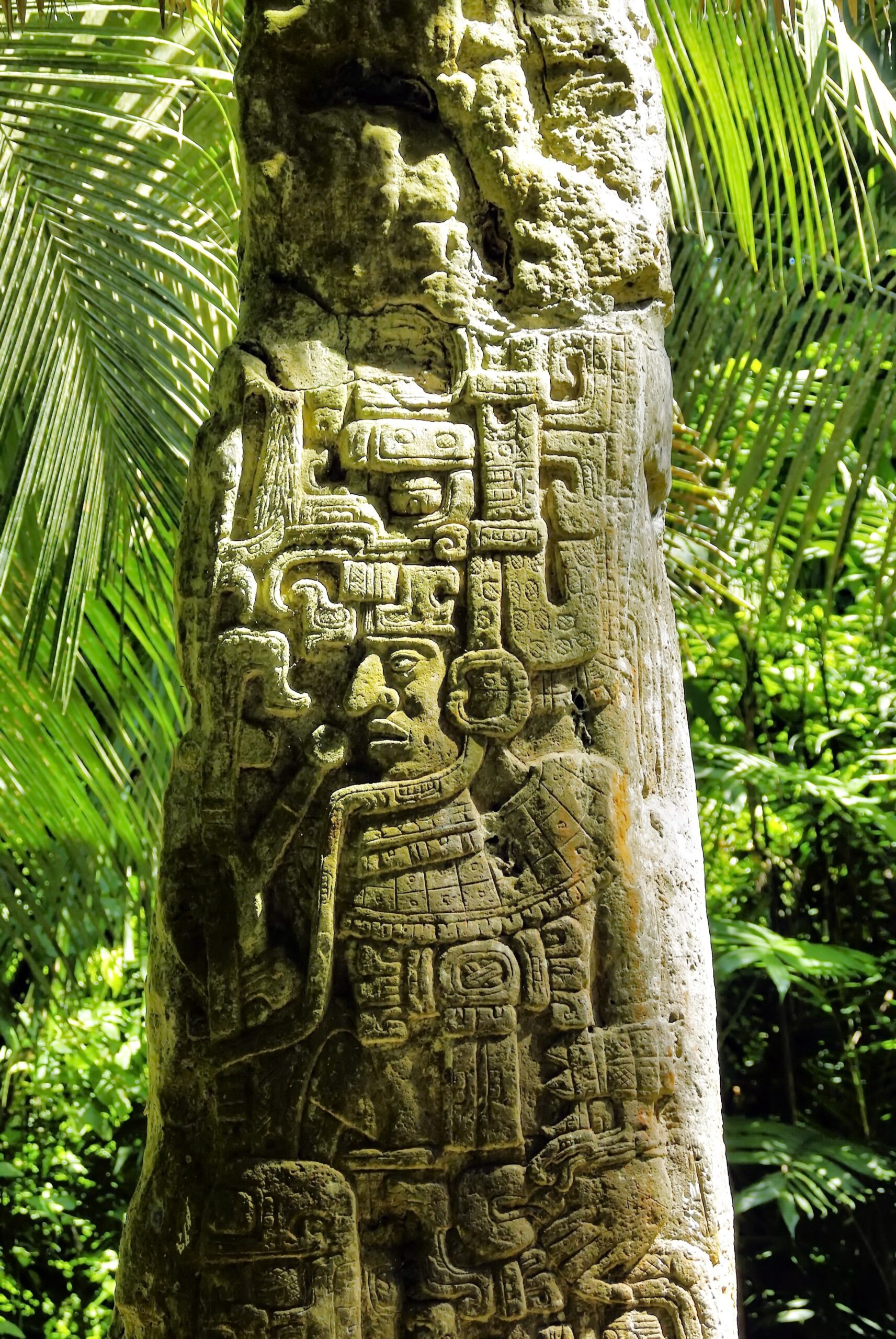Policy Brief No. 10
March 2022
Haydee Dijkstal
With the first prosecutions of the war crime of destruction of cultural heritage before the International Criminal Court in the cases against Ahmad Al Faqi Al Mahdi and Ag Abdoul Aziz Al Hassan, it has been demonstrated that acts which destroy cultural heritage are amongst the crimes grave enough to be addressed by the Court as judicable crimes within its jurisdiction.
These proceedings have emphasized the international importance of protecting cultural heritage, not just as acts against important objects and buildings, but as crimes against groups of victims, and even humankind. Reports indicate that the destruction of cultural heritage is often caused by activities associated with globalization, but which are outside of the context of an armed conflict recognized under international law. This dynamic makes it clear that the war crime of attacks against cultural heritage under Article 8(2)(b)(ix) and 8(2)(e)(iv) of the Rome Statute, which requires that the crime is committed during an armed conflict, is inapplicable to situations where cultural heritage is destroyed by way of activities such as large-scale development projects and exploitation of natural resources, leading to environmental damage and abusive land acquisitions.
This paper addresses the fact that the crimes within the ICC’s jurisdiction only provide a remedy for actions against cultural heritage perpetrated during conflict or war. As this reality leaves a gap in recourse for victims harmed outside a recognized armed conflict, this paper raises the possible applicability of other crimes within the Rome Statute which might provide victims an alternative avenue of seeking accountability.
Activities of globalization directly affect the rights of communities – and disproportionately indigenous peoples – to practice their culture and interact with their heritage on the affected land, which is often integrally tied to a group’s culture. Therefore, this paper explores the link between environmental crimes, the destruction of cultural heritage, and the crimes against humanity of deportation and forcible transfer before the ICC. Through this link, this paper recommends that the crime against humanity of deportation and forcible transfer be explored and utilized, both by the Office of the Prosecutor and by victims who can raise their harm before the Court, to protect cultural heritage by prosecuting instances where activities associated with globalization occurring outside an identified armed conflict, as defined under international law, force people from their lands and destroy the land and environment, which are integral to their cultural heritage.
“With the absence of a specific crime within the Rome Statute to address the destruction of cultural heritage occurring outside a recognized armed conflict, using the crime against humanity of deportation or forcible transfer, provides an opportunity to seek justice for the loss of cultural heritage by prosecuting the forcible displacement of communities from the land associated with their culture through coercive acts associated with globalization projects and environmental damage.”
Haydee Dijkstal









